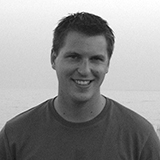Do we need a new breed of doctor to concentrate on function rather than malfunction?
 I am standing in my pyjamas looking into the bright white interior of my refrigerator after a gruelling seven days at work. To help nourish my tired body, I don’t know whether I should reach for the eggs to make an omelette or the milk to add to cereal. Although the dog needs to be walked, perhaps a high intensity training session in the gym would be better for my heart. At 3pm, my week of poor sleep catches up with me. Should I take a nap, have an early night, or just stick to my normal sleep pattern to ensure maximum recovery? Although I have been caring for the sickest patients in the hospital all week, I don’t know how to best promote my own health. It seems that as doctors we are experts at malfunction, but distinctly novice at promoting function.
I am standing in my pyjamas looking into the bright white interior of my refrigerator after a gruelling seven days at work. To help nourish my tired body, I don’t know whether I should reach for the eggs to make an omelette or the milk to add to cereal. Although the dog needs to be walked, perhaps a high intensity training session in the gym would be better for my heart. At 3pm, my week of poor sleep catches up with me. Should I take a nap, have an early night, or just stick to my normal sleep pattern to ensure maximum recovery? Although I have been caring for the sickest patients in the hospital all week, I don’t know how to best promote my own health. It seems that as doctors we are experts at malfunction, but distinctly novice at promoting function.
The truth is, when my friends ask for advice on diet, sleep, exercise, mental health, or wellbeing, my title of “Dr” adds little of help. Of course, the correct answers to their questions are also very uncertain even for experts. Low fat vs high fat vs high protein vs low carb diet is an argument set to rage for decades. High intensity training vs the slow plod for cardiovascular health is equally as confusing. However, I am not even well appraised of the arguments behind these uncertainties, let alone the conclusions.
After a recent trip away with friends, it was quickly apparent that they knew far more than I do about these essential elements of health. One friend who is a martial artist spoke beautifully about how to best promote muscle strength. Another explained the beneficial effects of sleep hygiene. Another how making simple changes to his diet had promoted weight loss. I could only offer solutions for malfunctions which thankfully none of them had. However, health is not the opposite of disease. Many people are free of disease, but very unhealthy in both physical and psychological terms. The promotion of health to help reduce disease inequality and as a preventative measure therefore needs to be borne through a different route than me—a doctor of disease.
How should discovery and dissemination of health be best achieved? Perhaps we should admit to ourselves that as “disease professionals” health is not our bag. Deferring this knowledge acquisition, argument, and dissemination to other experts already occurs. My CrossFit instructor knows far more than I ever could about injury prevention, muscle strength, and cardiovascular health. Matt Walker’s best selling book “Why we sleep” blows the average doctor’s insight into the importance of rest out of the water. Jamie Oliver understands better than most the impact that diet can have on childhood obesity. Perhaps this should be accepted, embraced, and promoted by health services to ensure better preventative “medicine.”
Of course, reliance on unregulated others also carriers risks. The lack of regulation in the health industry gives much space to pseudoscience and personality based advice. I haven’t seen many well conducted, double blind, randomised control trials on the use of vaginal eggs to promote “energy” for example.
An alternative to this export is to develop a new breed of doctor who can concentrate on function rather than malfunction. A fusion of exercise physiology, occupational medicine, mental health, sleep medicine and nutrition. They would not treat disease, but promote health. This could be delivered not in hospitals or GP surgeries, but in coffee shops, gyms, spas, and places of work. While they still may not be able to disentangle the answers to low vs high carbs, they would at least be trained in the methods to try to do so. Concentrating on this function may reduce the burden on doctors like me who can only treat malfunctions.
Matt Morgan, Honorary Senior Research Fellow at Cardiff University, Consultant in Intensive Care Medicine and Head of Research and Development at University Hospital of Wales, and an editor of BMJ OnExamination. He is on twitter: @dr_mattmorgan
Competing interests: None declared
